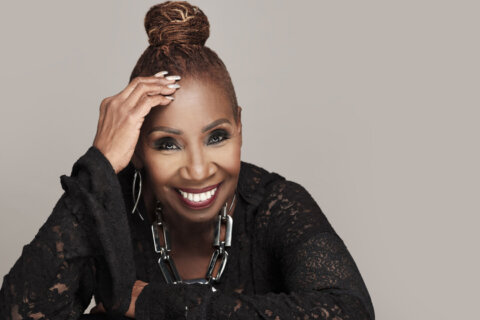The coronavirus is “raging” in Prince George’s County, Maryland, and widespread vaccination is critical to control the outbreak, according to Dr. Ernest Carter, the county’s health officer.
Carter told council members that Prince George’s County will get a portion of the 155,000 Pfizer-BioNTech vaccines Maryland will receive in the first round of distribution. The number of vaccines the county gets will be based on population, but officials didn’t have raw numbers and said the figures could change.
On Tuesday afternoon, Maryland officials announced that all state hospitals and nursing homes would get the first doses of the coronavirus vaccine in the next two weeks. A total of 300,000 doses is expected by the end of the month, depending on the rate of vaccine production.
Carter told council members the county needs to vaccinate 65% of the population in order to get a handle on the spread of the coronavirus.
“It would be great if we get 85%,” Carter added. “But we need 60% to 70% of our population vaccinated.”
That means the county needs to ensure that 600,000 residents receive them as the vaccines become available, according to Carter.
“That’s about 1.2 million vaccinations, and that’s a lot,” the health official said.
Overcoming any hesitancy on the part of residents will be important, said Carter, who has previously pledged to get his vaccine publicly to instill confidence in the community.
“We have to be sure that people are coming, willing and eager to get it,” Carter said.
While the county urges residents to get vaccinated, Carter added people need to understand that the initial supply of vaccines is limited, but as more get authorized for emergency use by the FDA, the number of doses should increase.
“It’s important to know that this is a slow and gradual process because of the limited supply that we have,” said Carter.
Carter added it could be 12 to 15 weeks before a large portion of county residents will have access to vaccines. That includes people in high risk categories.
“That’s a lot of people, that’s almost half of our county,” said Carter, who explained that the high risk group includes the elderly, people with diabetes, people who are obese or people who have any chronic disease. The group also includes pregnant women.
Carter then explained who will get vaccines in Phase II, after the at-risk population is immunized.
“That’s when we back start vaccinating court staff, state municipal government, retail folks, and our closest partners, those folks who are working with us to help us with vaccinations,” Carter said.
Prince George’s County Council member Jolene Ivey asked about overcoming skepticism among Black residents.
“We need to do a better job of showing everybody getting a shot,” Ivey, who is Black, said.
And the messaging can’t be limited to just images of Black people giving and receiving the vaccines, she continued.
Ivey said she worried that those images would have Black residents questioning why they were being targeted by public health officials.
“You start to feel like — what are you trying to pull over on us?” Ivey said.
Ivey said she’s not in the category of those who are concerned about the safety or efficacy of the vaccine.
“I’m trying to get into a trial,” she said with a laugh. “I want the vaccine!”
Dr. George Askew, the county’s deputy chief administrative officer who has addressed the same issue, said he understands the problem, but for health officials, it’s a catch-22. The Black and Latino communities have been hardest hit by COVID-19, so that’s prompted the push to get those populations to get vaccinated.
“You want Black and Brown people at the front of the line for something that you think that is effective and important and a limited resource,” Askew said. “By the same token, whenever we’ve been put at the front of the line, it’s been as the canaries in the coal mine.”
Carter said he’s working with the health department to do more outreach, including among non-English speakers.
County officials said they’ve secured freezers that can handle the Pfizer vaccines, which require very cold temperatures. They also have enough refrigeration space for the vaccines that need storage in standard freezers.
- Sign up for WTOP alerts
- Latest coronavirus test results in DC, Maryland and Virginia
- Coronavirus vaccine FAQ: What you need to know
- Congress averts shutdown, buys time for more COVID-19 talks
- DC doctor who rolled up sleeve for one of first shots: Coronavirus vaccine ‘a no-brainer’
- How many people in DC are properly wearing masks? Depends on where you are
- Virginia to institute nightly curfew, new gathering limits, mask rules
- Viral spread: Americans paying the price for Thanksgiving
Looking for more information? D.C., Maryland and Virginia are each releasing more data every day. Visit their official sites here: Virginia | Maryland | D.C.








